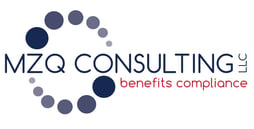Group Health Plan Sponsors Encouraged to Extend Special Enrollment Period for Medicaid Redeterminations
With the ongoing issue of Medicaid redetermination taking place across the nation, the Centers for Medicare & Medicaid Services (CMS), the Treasury, and the Department of Labor (collectively, the Agencies) are strongly encouraging group health plan sponsors to extend special enrollment periods for individuals who are losing coverage under Medicaid and the Children’s Health Insurance Program (CHIP). This request is not mandatory for employers, and there are significant compliance considerations for employers that extend the enrollment window for this population.
As background, according to federal Health Insurance Portability and Accountability Act (HIPAA) rules, individuals have 60 days from losing CHIP and Medicaid eligibility to elect coverage under their group plan. During the recent public health emergency declared as a result of the COVID-19 pandemic, state agencies did not terminate individuals’ Medicaid or CHIP coverage. That “continuous enrollment” ended on March 31, 2023, and the special enrollment period for individuals losing Medicaid or CHIP coverage was extended to 60 days after the end of the subsequent “outbreak period.”
A variety of creditable sources have indicated that anywhere from 18 to 38 million individuals will lose their Medicaid or CHIP coverage. At least 3,991,000 Medicaid enrollees have already been disenrolled as of August 8, 2023, based on the most current data from forty-two states and the District of Columbia. The real potential of this number growing daily is what has prompted the Agencies to issue this “request.”
CMS has separately announced a temporary Exchange special enrollment period for individuals to enroll in coverage any time between March 31, 2023, through July 31, 2024. The request by the Agencies asks employers and plan sponsors to follow suit and extend their group health plan special enrollment periods for those who are losing this coverage.
It is not mandatory that an employer extend their HIPAA special enrollment period beyond the existing 60-day requirement. Additionally, if an employer decides to increase the allowable timeframe, extending the open enrollment window fully to July 31, 2024, is not required.
Compliance considerations for plan sponsors if they extend
- A decision will have to be made rather quickly, as these redeterminations are happening at a more rapid pace than in April and May.
- Fully insured and level-funded groups should seek guidance from their insurance carrier to see if accommodation will be made for a longer enrollment period for people with qualifying events due to the loss of Medicaid/CHIP eligibility.
- Employers who sponsor traditional self-funded coverage must address this change with their TPA, stop-loss carrier, and other service providers.
- Proper communication of these changes to employees is essential. Of course, amending plan documents to reflect the changes is also necessary. All employers that decide to lengthen their election period for people who lose Medicaid/CHIP eligibility must distribute either an updated summary plan description (SPD) or a summary of material modification (SMM) to plan participants.
- Employers will need to extend their open enrollment window to all eligible plan participants. Providing extensions on a case-by-case basis is not permissible.
The Agencies provided resources for employers and employees:
- A web page dedicated to the unwinding period of Medicaid/CHIP eligibility.
- A fact sheet for employers with employees who lose Medicaid or CHIP coverage outlining the steps employers may take to facilitate continuous coverage for affected employees.
- A flyer employers can share with employees who are enrolled in Medicaid or CHIP and may lose their coverage.
Employers, and their brokers and advisors, can best serve plan participants by reviewing the population of each group of eligible employees to see if there are any current Medicaid/CHIP enrollees who might lose their program eligibility and could be eligible for group coverage if that were to happen. Communication is key as deadlines approach and eligible individuals will have questions. Finally, before deciding if extending a group eligibility window is appropriate, each employer should consider all of the compliance steps they will need to complete. MZQ Consulting stands ready to assist. Please do not hesitate to call upon us.
© 2023 MZQ Consulting, LLC. All rights reserved.
Content provided to Q4intelligence members by MZQ Consulting, LLC
Photo by vadimjoker




